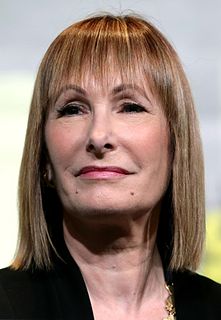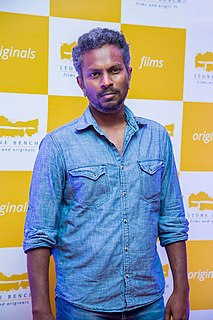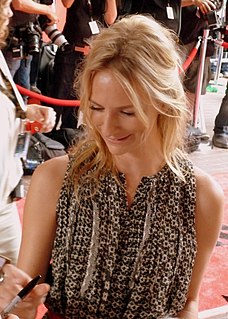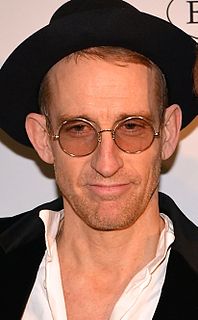A Quote by Israel Horovitz
Plays are literature: the word, the idea. Film is much more like the form in which we dream - in action and images (Television is furniture). I think a great play can only be a play. It fits the stage better than it fits the screen. Some stories insist on being film, can't be contained on stage. In the end, all writing serves to answer the same question: Why are we alive? And the form the question takes - play, film, novel - is dictated, I suppose, by whether its story is driven by character or place.
Quote Topics
Action
Alive
Answer
Being
Better
Character
Contained
Dictated
Dream
Driven
End
Film
Fits
Form
Furniture
Great
Idea
Images
In The End
Insist
Like
Literature
More
Much
Novel
Only
Place
Play
Plays
Question
Same
Screen
Some
Stage
Stories
Story
Suppose
Takes
Television
Than
Think
Whether
Which
Why
Word
Writing
Related Quotes
A book is actually a place, a place where we, as adults, still have the chance to engage in active imagining, translating word to image, connecting these images to memories, dreams, and larger ideas. Television, film, even the stage play, have already been imagined for us, but the book, in whatever form we choose to interact with it, forces us to complete it.
I always had something to think about or draw from, which as an actor is a gift. The beautiful thing about film is that it gets so much closer than stage. I love stage and that's what I started doing and it's a beautiful art form in of itself, but in film you can move your eyes to the side and somehow the audience can fill in the blanks of what you're thinking.
The great thing about television is that you get to tell, like with "The Walking Dead", 16 hours worth of character-driven storytelling in less time than it takes to make a feature film. So, it really is a medium at least for storytellers who are passionate about not only the genre but also the character-driven genre stories. It's probably a better medium.
The cognitive therapy that takes place in the film Antichrist is a form of therapy that I have used for some time, and it has to do with confronting your fears. I would say that especially the part of the film that has to do with therapy is humoristic because people who know about this form of therapy would know that the character is more than a fool.
Whether it's animated, whether it's live-action, whether it's Broadway, whether it's television, a musical is a musical is a musical. So, pretty much you approach the songs in pretty much the same way. The difference might be that in a film you have a close up. On stage you don't. So there are more songs on the stage because the songs are kind of the close up.
It feels that way when I'm doing a play, absolutely. On film and television, it's more complicated than that I think, and when you start to add the business into the mix, and the industry into the mix, it doesn't maintain it's purity. That's something that's inevitable and unavoidable, but that's why I try to do plays as much as I possibly can.
I needed to create some dramatic tension to sustain the interest of the audience. For instance, the boy in the film is not in the play, so this relationship that he had with the former teacher, and his guilt, this is not at all in the play. I thought it would be interesting to look at in the film, and I added stuff like that around the main character. For me, it was not more difficult or less difficult.




































